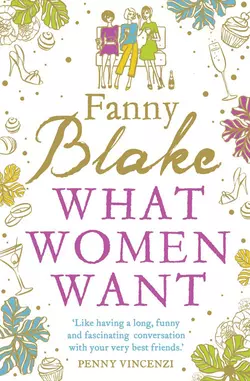What Women Want

Fanny Blake
Тип: электронная книга
Жанр: Современная зарубежная литература
Язык: на английском языке
Стоимость: 465.10 ₽
Статус: В продаже
Издательство: HarperCollins
Дата публикации: 16.04.2024
Отзывы: Пока нет Добавить отзыв
О книге: A heartwarming and witty novel about female friendships and how they will outlast any man from the author of The Secrets Women KeepBea, Kate and Ellen have always known that they can depend on each other, no matter what. But as each reaches a new phase in their life, their bond is put to the test.Recently-divorced Bea′s job is in jeopardy as she grapples with a new boss and her power-hungry younger colleagues. At home she has to deal with a stroppy teenage son and the gaping hole left by her ex-husband. Feisty, impulsive and never one to give up, she throws herself back onto the dating scene. Her friends will hold her steady.Stressed-out Kate contends with an empty nest now that her children have left home, a frantic pace at work as a GP and the growing realisation that her marriage has definitely lost its shine. Reliable, hard-working, how can she find the energy to keep going? At least her friends will lift her spirits.Then Ellen, who has devoted herself to her two children and her small art gallery for the last ten years since her beloved husband died, falls head over heels in love with Oliver.When Oliver forces Ellen to re-evaluate everything about herself and her future, so Bea and Kate are driven further away from their friend and from each other as they react differently to this unfamiliar stranger in their midst.A novel about love and life and the issues that face women today as they try to decide what they want – and come to realise what they really need…